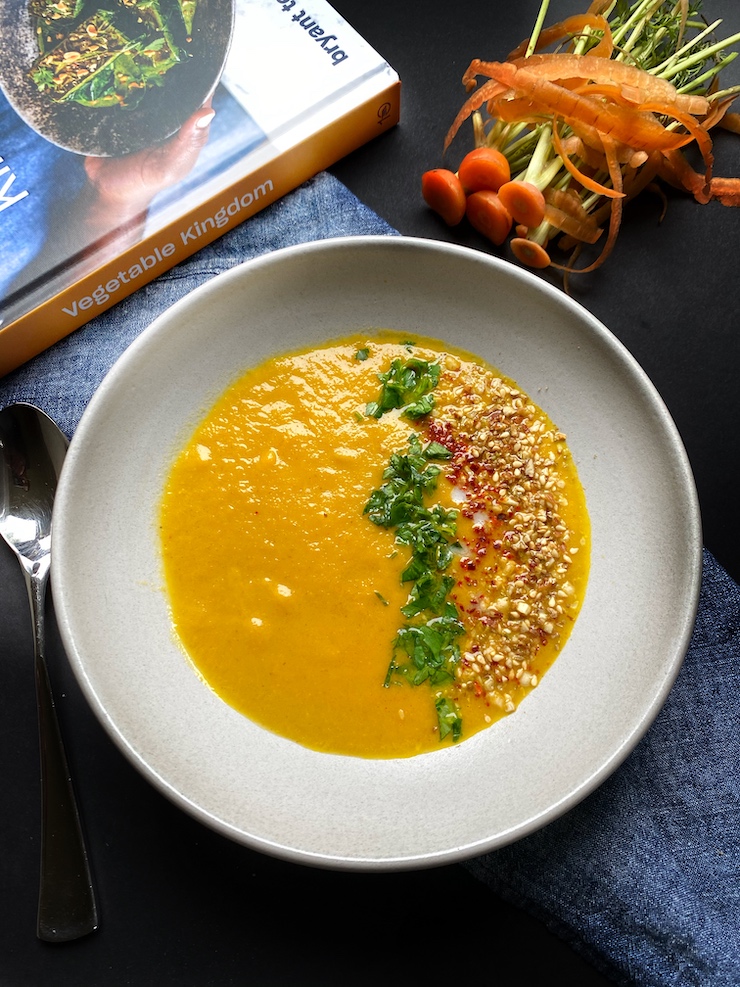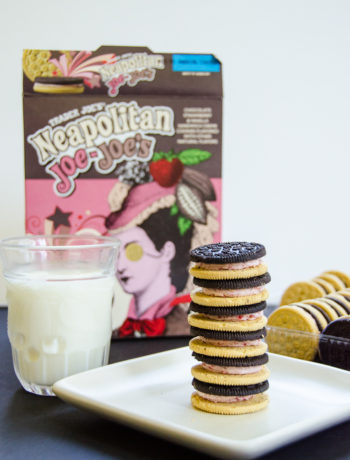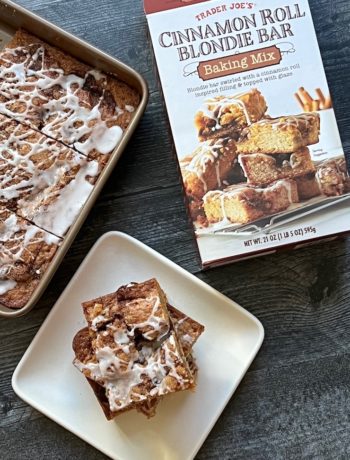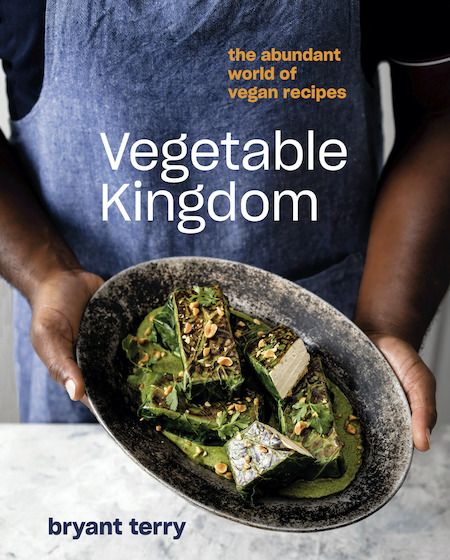
Eight years ago Bryant Terry spoke at a food blogger conference I attended to talk about veganism and his book Afro-Vegan. At that point, the few vegan cookbooks I’d dabbled with, like Veganomicon, were an interesting eating experiment but nothing I was interested in committing to long-term. A lot has changed in the intervening 10 years, both in the world, and in our eating habits. Vegetable Kingdom, Terry’s new Afro-Asian inspired book, couldn’t come at a better time.
Cooking through it in the last few weeks, I’ve been struck that his approach to plant-based eating doesn’t lean on highly processed replacement products like nut-based cheeses or meat alternatives. And that’s what I like about it. It’s real food. There’s tempeh and tofu here and there, and maybe ONE recipe with nutritional yeast in it. And for the way I want to incorporate plant-based meals into our lives, that is PERFECT.
Organized by vegetable type — seeds, bulbs, stems, leaves, roots, tubers, etc. — Vegetable Kingdom offers a mix of soups, side dishes, salads and mains. It’ll give you new ideas for the veg you love and challenge you to try new-to-you vegetables like kohlrabi (great in salads), or even sunchokes.
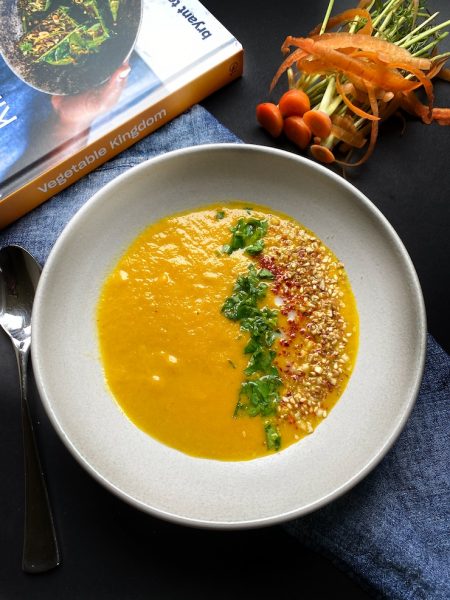
Since we’re in the dead of winter, I started with the Creamy Carrot Coconut Soup with Ras al Hanout, Dukkah and Parsley. It sounds simple, and it is, but it’s the combo of flavors, the texture of the dukkah and the freshness of the parsley that made me stop and say, this is no ordinary pureed veg soup. I’ve got that recipe for you below, including the dukkah and the vegetable stock, if you want to tackle it all from scratch.
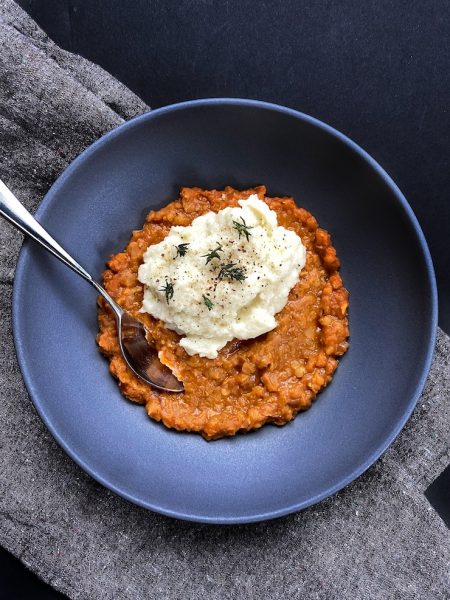
I’ve been obsessed with the cauliflower recipes. From the Hot Sauce Soaked Cauliflower over whole-wheat bread to the Creamy Cauliflower paired with Berbere-spiced red lentils (it’s oh-my-god delicious) and next I’ll be tackling the Dirty Cauliflower.
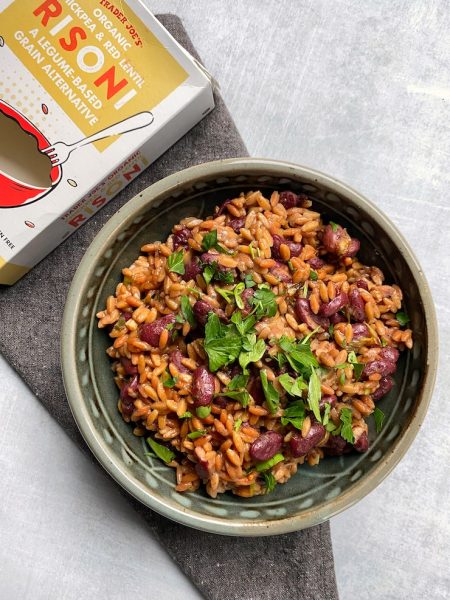
I riffed on the Farro and Kidney Beans with burnt scallions using Trader Joe’s legume-based risoni. It’s cooked in half coconut milk and a little bit of allspice, flavor-building is happening at every layer of the dish.
I’m eyeballing the Roasted Sweet Potato and Asparagus Po-Boys. They’ll have to wait for Spring so I can fully do them justice.
If I have one nit, it’s that it asks you to soak beans and rice in advance (Terry addresses the reasoning in the book). Which, if you’re a planner like me, is no big deal. Just pick out any debris and put them in a bowl of water before you go to bed the night before. But I also know, sometimes the way to get people to embrace new ways of eating is make it easier for them. I used canned beans in the riff on the Farro and Kidney Beans, so it can be done.
Vegetable Kingdom is an indispensable resource for vegetable forward eating. The more I cook from it, the more I know it’s staying in my kitchen, rather than getting shuffled downstairs.
Thank you to @TenSpeedPress for the free review copy.
Get Vegetable Kingdom on Amazon |Apple Books | IndieBound | Bookshop.org
This post includes affiliate links which kick us a small percentage at no cost to you. If you found this review useful, please support my work – thanks!
Edit 6/12/20: To see what I’ve cooked from Vegetable Kingdom since this review ran, check out this Instagram highlight.
Creamy Carrot-Coconut Soup
I hope this recipe serves as a model for how easily you can convert farm-fresh ingredients into a simple, delicious pureed winter soup. The foundation is a mixture of sautéed aromatics, a blend of fragrant spices (store-bought ras el hanout is fine), a clean homemade stock, and something creamy. After that, it’s simply a matter of choosing garnishes that will enhance the flavor, add freshness, and make a beautiful presentation.
Ingredients
- 2 tablespoons extra-virgin olive oil
- 2 cups diced yellow onions
- 1 teaspoon minced garlic
- 1 1/2 teaspoons ras el hanout
- 1 1/2 pounds carrots, chopped
- 4 cups rich vegetable stock (page 231)
- 1/4 cup unsweetened canned coconut milk
- 2 tablespoons fresh lemon juice
- 1/4 cup Almond Dukkah (page 240), for garnish
- 2 tablespoons minced fresh parsley, for garnish
- ALMOND DUKKAH
- 1/2 cup
- 7 tablespoons finely chopped almonds, toasted
- 2 tablespoons black sesame seeds, toasted
- 1/2 teaspoon coarse sea salt
- 2 teaspoons coriander seeds, toasted
- 2 teaspoons cumin seeds, toasted
- VEGETABLE STOCK
- 1 tablespoon olive oil
- 1 large onion, unpeeled, thinly sliced
- 3 celery stalks, thinly sliced
- 1 large carrot, coarsely grated
- 8 ounces any mushrooms and their stems
- 1/4 head green cabbage (about 8 ounces), thinly sliced
- 1 head garlic, broken apart, unpeeled cloves smashed with the flat side of a knife
- 1 bouquet garni
Instructions
In a medium saucepan, warm the olive oil over medium heat until shimmering. Add the onions and sauté until just soft, about 5 minutes. Add the garlic and cook until fragrant, 2 to 3 minutes. Add the ras el hanout and stir to combine.
Add the carrots and stock and bring to a simmer. Cook, partially covered, until the carrots are meltingly tender, about 30 minutes.
Working in batches, transfer the soup to a blender and puree, then return it to the pot (or puree it directly in the pot using an immersion blender). Stir in the coconut milk and lemon juice and simmer for a few minutes to combine. Thin the soup with water if necessary (the soup should easily pour from a spoon).
Ladle the soup into four bowls, top evenly with the dukkah and parsley, and serve.
TO MAKE THE DUKKAH:
Put the almonds, sesame seeds, and salt in a small bowl. Combine the coriander and cumin seeds in a mortar and pound with the pestle until smashed but not finely ground. Add to the bowl with the almonds and mix well. Store in an airtight container in the refrigerator for up to 2 weeks.
TO MAKE THE VEGETABLE STOCK
In a large pot, warm the olive oil over medium-high heat. Add the onion, celery, carrot, mushrooms, cabbage, and garlic and cook until softened, 5 to 7 minutes. Add 10 cups water, raise the heat to high, and bring the water to a boil. Decrease the heat to medium-low, add the bouquet garni, and simmer, partially covered, for about 2 hours. Strain the stock through a fine-mesh sieve, pressing down on the solids to extract as much liquid as possible. Use immediately, or let cool and store in airtight containers in the refrigerator for up to 3 days or in the freezer for up to 6 months.
Notes
Reprinted with permission from Vegetable Kingdom: The Abundant World of Vegan Recipes by Bryant Terry, copyright © 2020. Published by Ten Speed Press, an imprint of Penguin Random House.

